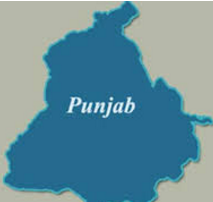Cancer Risk Linked to Heavy Metal Pollution in Punjab
Recent studies have revealed alarming health risks associated with heavy metal pollution in Punjab. Research conducted by Punjabi University and Thapar University has identified correlation between living near polluted river drains and increased cancer rates. The findings highlight the urgent need for intervention to mitigate public health risks.
Study Overview
The Indian Council for Medical Research (ICMR) Researchers focused on wastewater drains of the Ghaggar river in Punjab. They noted excessive levels of heavy metals like lead, cadmium, and nickel. These metals exceeded permissible limits set by the Central Pollution Control Board. The study was conducted between October 2017 and July 2018, analysing samples across different seasons.
Heavy Metal Contamination
The study brought into light contamination levels in three major drains – Sirhind Choe, Badi Nadi, and Dhakanshu Drain. The concentrations of iron and aluminium were particularly alarming during the monsoon season. The researchers attributed this to agricultural runoff and untreated wastewater discharge into the drains.
Health Risks Identified
The World Health Organization classifies cadmium, nickel, and lead as carcinogenic to humans. Direct exposure occurs through drinking contaminated water. Indirect exposure can happen during domestic activities involving surface water. The hazard index values for lead were found to exceed 1 at all study sites, indicating a high risk of non-carcinogenic health issues.
Vulnerable Populations
The research indicated that children are at a higher risk of health issues linked to heavy metal exposure. Carcinogenic risk values for lead, cadmium, and nickel surpassed safety limits established by US regulators. This suggests a critical need for public health interventions, especially for vulnerable populations like children.
Environmental Impact
Heavy metal pollution not only affects human health but also degrades groundwater quality. The study pointed out that untreated wastewater from industrial and municipal sources contributes to water contamination. The lack of comprehensive data on heavy metal distribution complicates efforts to address these environmental challenges.
Call for Action
Researchers emphasised the urgent need for effective management of hazardous contaminants. They called for improved monitoring of water quality and the implementation of stricter regulations on wastewater discharge. Addressing these issues is essential to protect public health and the environment in Punjab.
Month: Current Affairs - March, 2025
Category: Environment Current Affairs







